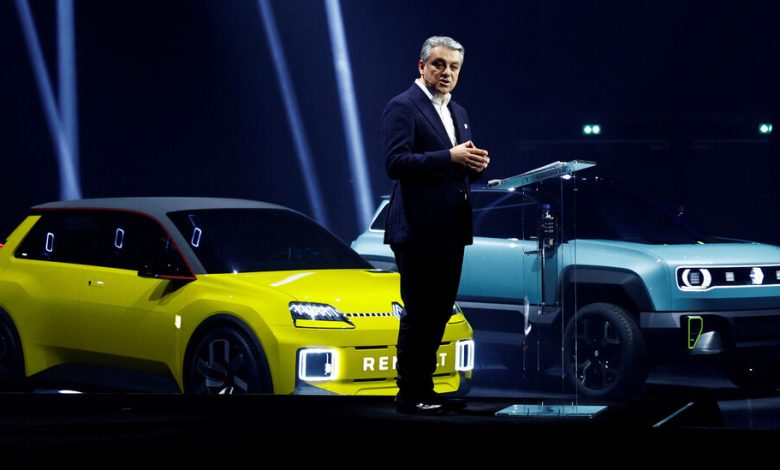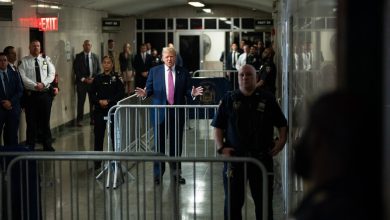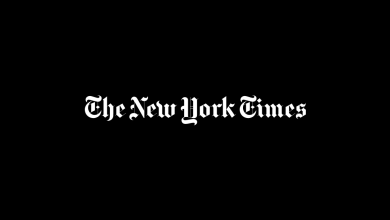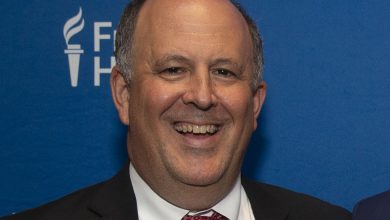Auto Execs Call for New Measures as E.V. Wars Heat Up


Luca de Meo, the C.E.O. of Renault Group, is calling for an “Airbus of E.V.s” to help European automakers better compete against low-cost Chinese rivals.Credit…Gonzalo Fuentes/Reuters
An auto C.E.O.’s plan to fend off China
Tesla is scheduled to announce first-quarter delivery data this week, a key update as investors grow increasingly rattled about Chinese rivals — especially the Warren Buffett-backed BYD — gaining ground in the electric vehicle race.
Tesla’s stock is down nearly 30 percent this year, with short sellers circling.
Politicians and auto executives on both sides of the Atlantic are calling for more protectionist measures. After Tesla lost its crown to BYD as the world’s biggest E.V. maker, Elon Musk signaled that trade barriers may be needed. Otherwise, the Tesla C.E.O. said, Chinese E.V. makers “will pretty much demolish most other companies in the world.”
Luca de Meo, Renault Group’s C.E.O., is pushing for a more radical approach, Vivienne Walt reports for DealBook. His answer to the China threat: an E.V. alliance modeled on Airbus, the heavily state-supported planemaker.
“The prosperity of Europe is at stake,” he wrote recently in a 19-page open letter designed to get politicians’ attention ahead of June’s E.U. parliamentary elections. The continent’s auto sector employs 13 million people and generates 8 percent of the bloc’s G.D.P.
Here’s what de Meo has in mind: European auto giants would join forces on battery and semiconductor production and on research and development in an effort to bring down E.V. manufacturing costs and better compete against their non-European rivals. “If they’re competing as they are, they are weaker in front of China,” Felipe Munoz, senior analyst for JATO Dynamics, an auto consulting firm, told DealBook. “Their E. V.s are still very expensive. They have problems with battery production.”
Airbus is one of Europe’s great successes, having overtaken Boeing as the world’s largest commercial planemaker. (Both companies have accused the other of receiving unfair competitive advantages, culminating in a W.T.O. ruling that each of them had received preferential subsidies.)




